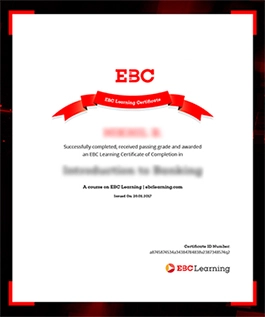Legal Research and Writing
We are rarely taught the art of legal research and writing as a discipline in our law schools. However, legal research and writing remain imperative skills to excel in litigation, corporate consultancy, academics, policymaking, to name a few. Most courses on legal research and writing taught in law schools receive theoretical treatment which hinders skill-based learning.
This course focuses on implementing workable models in legal research by understanding various approaches to legal scholarship. You will also understand the importance and methodologies of aligning legal research and writing with the outcomes. This course has been designed and developed for law students as well as law professionals.

Research is to see what everybody else has seen, and to think what nobody else has thought.
Albert Szent-Gyorgyi- 1. 📕 Introduction
- 1.1 ▸ Welcome
- 2. 📕 Dispatches from a legal researcher
- 2.1 ▸ Who is a ‘law’ researcher?
- 2.2 ▸ Approaches to legal scholarship
- 2.3 ▸ Research methodology: prognostic or diagnostic?
- 2.4 ✒ Exercises
- ☆ Feedback
- 3. 📕 Aligning legal research and writing with outcomes
- 3.1 ▸ No to shortcuts: Choosing a topic
- 3.2 ✒ Exercises
- 4. 📕 Comparative and interdisciplinary research
- 4.1 ▸ Introduction to comparative and interdisciplinary research
- 4.2 ▸ Steps in contemporary research
- 4.3 ✒ Exercises
- 5. 📕 Analogical reasoning in law
- 5.1. ▸ Introduction to analogical reasoning
- 5.2 ▸ Analogical reasoning and judicial precedents
- 5.3 ▸ How to identify ratio and obiter
- 5.4 ✒ Exercises
- 6. 📕 Empirical research
- 6.1 ▸ Introduction to empirical research
- 6.2 ▸ Steps in empirical research
- 6.3 ✒ Exercises
- 7. 📕 The cliches in research
- 7.1 ▸ Literature review
- 7.2 ▸ Applicability of literature review beyond academia
- 7.3 ▸ Objectivity in your research
- 7.4 ✒ Exercises
- 8. 📕 Housekeeping matters: basic approach
- 8.1 ▸ Legal writing sins
- 8.2 ▸ What serious researchers write?
- 8.3 ▸ Do’s and don’ts when you want to get published
- 8.4 ▸ Performance indicators in research
- 8.5 ✒ Exercises
- 9. 📕 Conclusion
- 9.1 ▸ Conclusion and next steps
- ☆ Feedback
WHY TAKE THIS COURSE?
Recent graduates, once out in the practice of law or pursuing higher studies face tremendous pressure to take a 360-degree turn and understand the applicability of the law to facts.
Lawyers spend ample time interpreting, analysing, systematically arranging facts and law, and communicating their arguments. Each stage requires systematic research and writing exercises. Not only this, surveying, data analysis, and empirical trends also highlight the need for policy framework. Recent trends indicate that think tanks, law firms, and other knowledge management firms prefer hiring law professionals with an extensive publication and research record.
This course has been designed to provide an understanding of the fine nuances of legal research, writing and legal scholarship. This course will help in developing a goal-oriented and result-driven approach in legal research.
Instructors

Shashikant Yadav
Shashikant Yadav is a writer, energy law researcher, and an academician with more than seven years of experience in legal research and writing. He has been associated with University of Dundee, Scotland, as an academic researcher and is currently affiliated with Central European University, Vienna.
Additionally, he is an Energy Law Fellow with NLU-Delhi's Centre for Environmental Law Policy and Research. He has worked on a number of research projects, including IIM Ahmedabad's project on “Supreme Court Analysis of India's Energy Sector”. His work has been published and featured with The Hindu, The Wire, The Ecologist, The Hindu Businessline, Journal of Energy and Natural Resources Law, Economic and Political Weekly, among many others.

The heart and soul of good writing is research; you should write not what you know but what you can find out about.
Robert J. SawyerCertificate
Complete this course and exercises to earn a certificate. Share it with your friends, colleagues, and employers.*
*You must Subscribe to get a certificate.

Limit Reached or Trial Expired
You have reached the limit of 2 audit enrollments or your trial period has expired.

